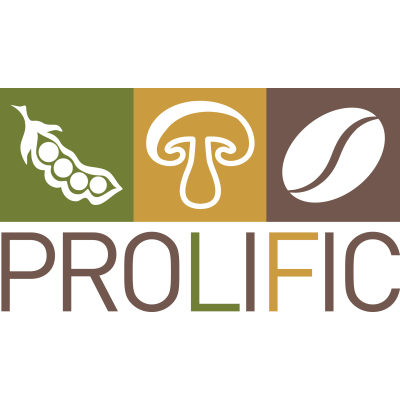
Prolific
Integrated cascades of PROcesses for the extraction and valorisation of proteins and bioactive molecules from Legumes, Fungi and Coffee agro-industrial side streams

Integrated cascades of PROcesses for the extraction and valorisation of proteins and bioactive molecules from Legumes, Fungi and Coffee agro-industrial side streams
Agro-industrial residual biomass, side streams and food production by-products such as legumes, fungi and coffee are likely to constitute rich sources of valuable ingredients. Their potential is yet to be fully realised. The Prolific project will apply a range of processing technologies to agro-industrial residues of legumes, fungi and coffee in order to recover significant amounts of proteins/peptides, fibres and other value-added compounds.
Once extracted by economically and environmentally sustainable protocols, the outputs will undergo enzymatic modification and conditioning techniques in an upscaled, industrially-relevant environment. Ultimately, this will provide viable amounts of the compounds and fractions necessary to produce 16 prototypes for the food, feed, packaging and cosmetic sectors. The Prolific project’s R&D&I activities and partners are streamlined around a core innovation cycle, principally driven by industrial end-users that know precisely what their customers need and the what are the technical and industrial demands of their sector.
The overall objective of the Prolific project is to apply, validate and scale up an integrated array of processes for recovering significant amounts of proteins/peptides and other value-added compounds from the agro-industrial residues of legumes (seeds of peas, beans and chickpeas), fungi (cuttings and mycelia of different species) and coffee (silver skin and non-compliant roasted seeds). The Prolific project will pursue the following specific objectives.
The overall impact of the Prolific project is to address specific challenges posed by the valorisation of untapped biomass streams. Specifically, these include: